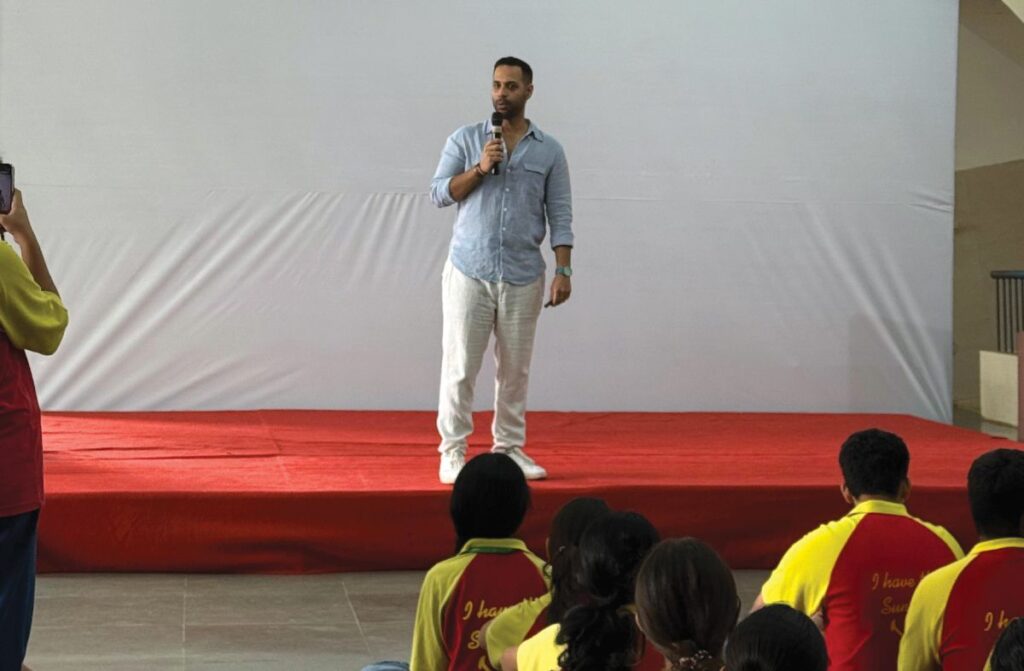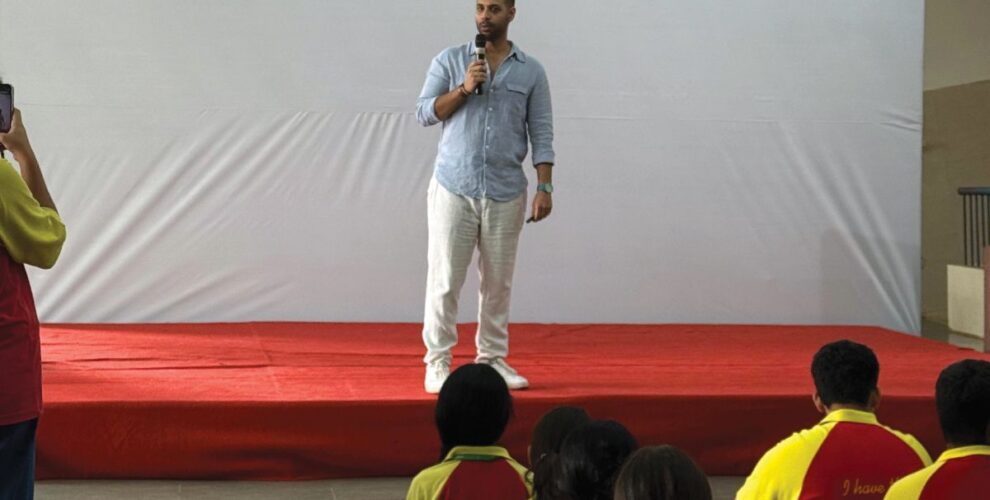
In an age where children are constantly surrounded by screens, the conversation around media often swings between concern and control.
“Too much exposure,” we say.
“They’re always on their phones,” we hear.
But what if the answer isn’t to pull them away from media — but to push them into it, consciously?
What if, instead of passive consumption, they learned the art of mindful creation?
This is where filmmaking enters the conversation — not as a career course, not as a club activity, but as a reflective process. One that gently and powerfully shapes a student’s awareness, personality, and worldview.
From Consumption to Consciousness
Let’s begin with the reality: our children are immersed in media. From Instagram Reels to Netflix dramas, from YouTube vlogs to viral videos — their worldview is shaped by what they see and hear, often unconsciously.
The situation is clear: they’re absorbing stories every day.
But very few are being taught how to read those stories.
Fewer still are encouraged to create their own.
That imbalance — between influence and insight — is where the real risk lies.
The task, then, isn’t to restrict their exposure. It’s to equip them with a lens.
A way to decode, reflect, and respond.
A way to participate — with clarity, ethics, and imagination — in the world they’re already a part of.
Filmmaking does exactly that.
The Process Is the Purpose
In my workshops, I’ve seen firsthand what happens when students are handed a camera — and asked not just to shoot, but to think.
They begin to ask different questions:
“Whose point of view is this?”
“What emotion am I trying to express?”
“How will this be perceived by someone else?”
As they move through scripting, shooting, editing, and screening — something else unfolds.
They collaborate, listen, and sometimes disagree.
They learn patience. They learn to see things from another person’s perspective.
They begin to understand that every shot is a choice — and that their voices matter.
The action is hands-on. But the result is deeply internal.
These students aren’t just making films.
They’re making sense of themselves.
They’re learning to observe before they judge, to listen before they react.
Emotional Intelligence in Action
Ask any parent today what they want most for their child, and you’ll hear:
“I feel they need to be more confident.”
“I want them to be emotionally strong.”
“I wish they could communicate their feelings and express their views.”
“I hope they get a sense of responsibility and start thinking for themselves.”
Filmmaking isn’t just about lights and lenses.
It’s about understanding human behaviour — reading silence, capturing subtext, and expressing emotion with clarity and care.
These are the exact skills that build emotional intelligence:
Understanding and appreciating multiple perspectives
Building inner awareness and thoughtful self-reflection
Managing emotions and expressing them constructively
Navigating group dynamics and solving challenges collaboratively
Over time, these children become more self-assured — not because they’ve learned to perform, but because they’ve learned to pause, reflect, and connect.
A Wider Worldview
In filmmaking, students learn that every shot has a background.
Every character has a reason.
Every scene has context.
Isn’t that what we want them to learn about the real world, too?
The magic of this process is that it stretches both sides of the mind.
It nurtures creativity, yes — but also responsibility.
It teaches structure as much as freedom.
It invites exploration while demanding empathy.
And it helps students navigate the noise of the digital world with far more awareness.
Once they’ve worked with sound design, they won’t fall for manipulative background scores in propaganda videos.
Once they’ve edited a scene for emotional impact, they’ll spot how advertisements try to do the same.
This is media literacy in action.
It’s not a subject.
It’s a survival skill.
Not a Career — A Compass
It’s important to say this clearly:
This isn’t about turning your child into a filmmaker.
It’s about helping them discover their own lens.
Some of them might go on to write screenplays or open a production house.
Some will become lawyers, designers, journalists, entrepreneurs, or doctors.
But all of them will have learned how to express clearly, collaborate sensitively, and think critically.
And in the world they’re growing up in — those are the skills that will set them apart.
The Role of Parents: Opening the Door
As parents, one of the most powerful gifts you can offer is space —
Space for your child to explore who they are, what they feel, and how they see the world.
Visual storytelling gives them just that: a space to observe, reflect, and express — in their own words, images, and ideas.
It’s less about performance, and more about presence.
Less about the right answer, and more about asking the right questions.
Through filmmaking, students begin to build clarity in thought, confidence in voice, and awareness in action — skills that stay with them far beyond the classroom.
We invite you to discover what this journey could mean for your child. We are happy to bring this course to Goa for the first time in association with Sunshine Worldwide School. Every child we empower today becomes an adult who leads with empathy, invests their energy wisely, and brings meaning into the world tomorrow.


Leave a Reply